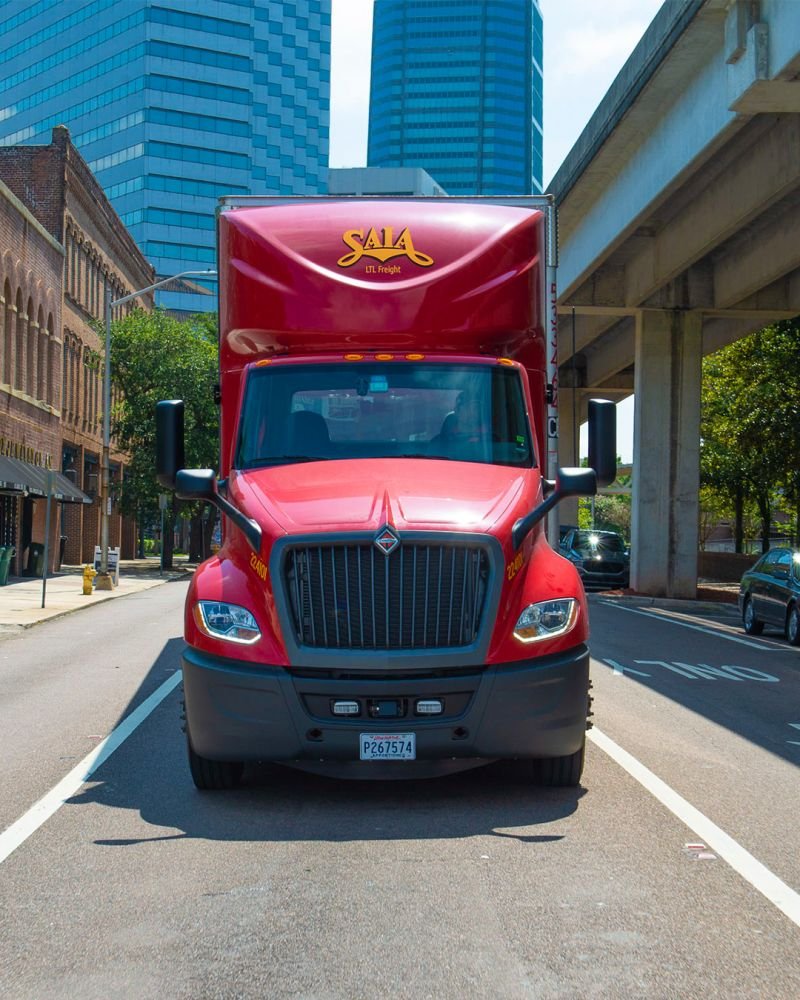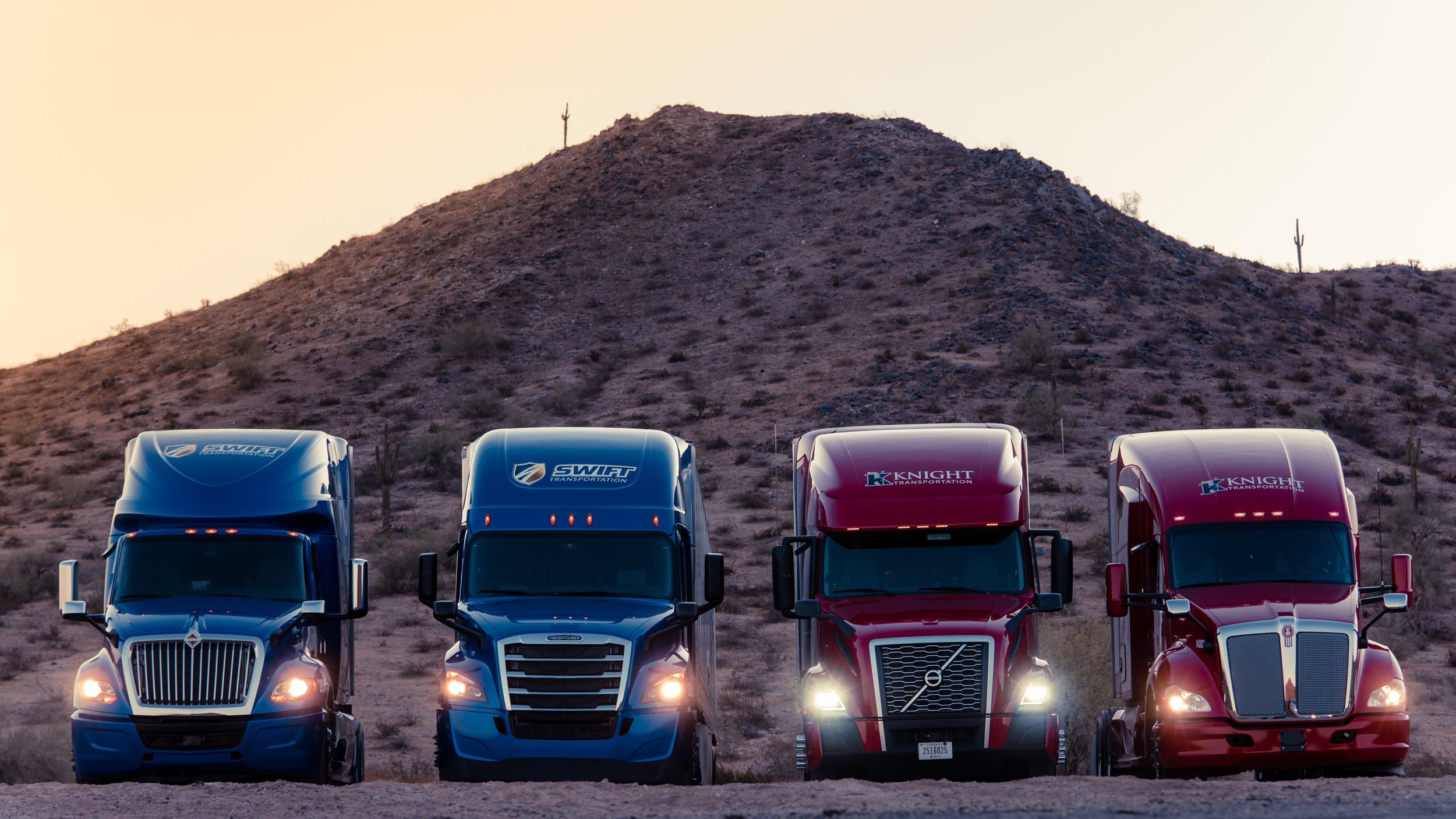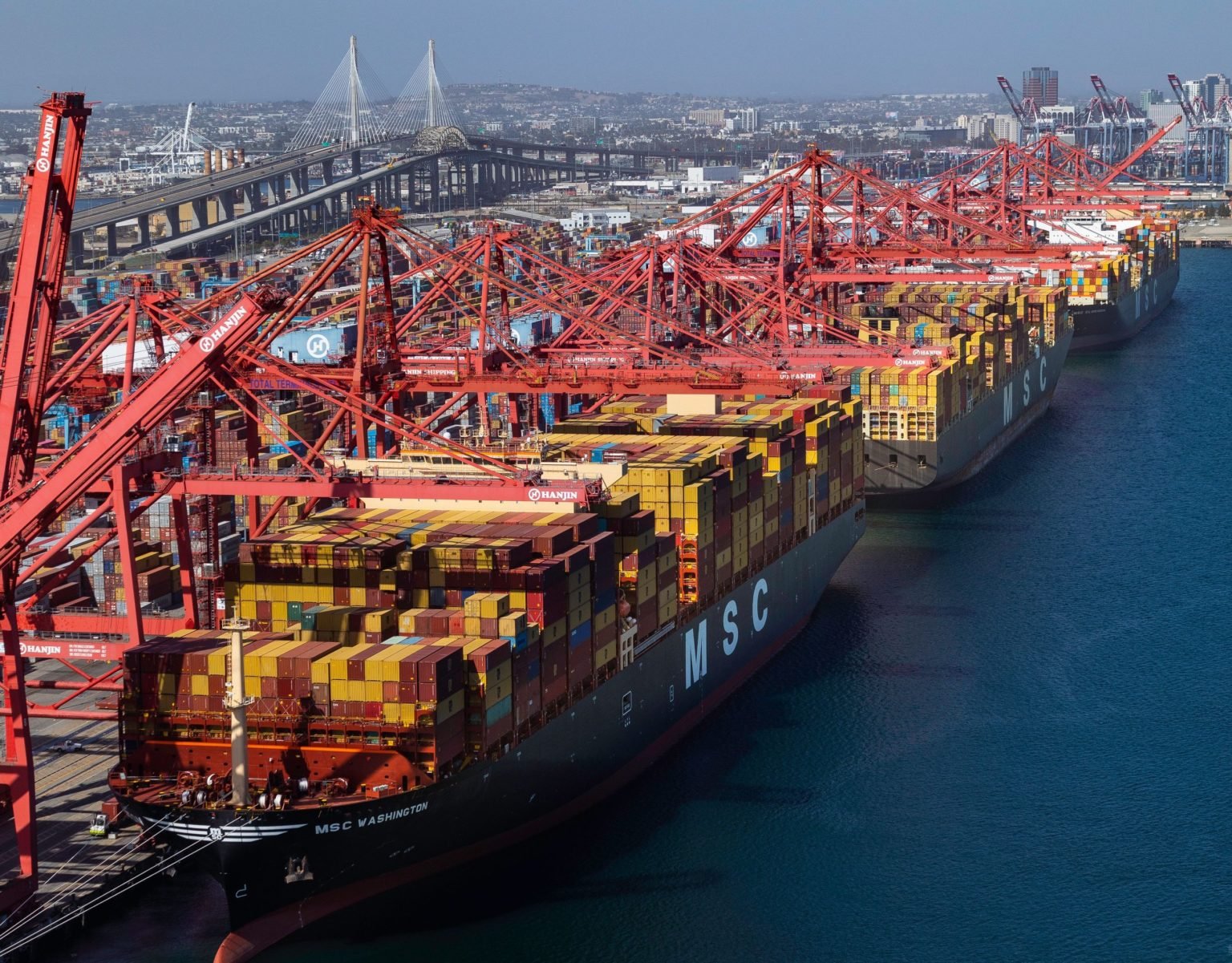Built for the Freight Floor: How ShipperCRM Turns Sales Reps into Relationship Builders
Most brokerages treat CRM like an afterthought. ShipperCRM changes that by giving reps freight-native workflows, lane-level visibility, and structured follow-up that turns quotes into relationships. It’s not just about logging activity—it’s about protecting margin.
Saia’s Long Game: How Operational Discipline Built an LTL Powerhouse
Saia didn’t explode onto the LTL scene—it compounded its way in. This post unpacks how Saia quietly built one of the most disciplined and profitable freight networks in North America by focusing on terminal density, capital restraint, and freight execution. While others chased volume, Saia scaled margins.
Knight-Swift: How Freight Density Became a Competitive Advantage
Knight-Swift isn’t just the largest truckload carrier in North America by size—it’s one of the most efficient by design. This post breaks down how network density, operational discipline, and strategic mergers built a freight machine that scales cost advantages across every mile.
Shein’s Supply Chain: How Real-Time Logistics Beat Traditional Fast Fashion
Everyone knows Shein for fast fashion. Fewer realize its true weapon is logistics: a real-time supply chain built to react, not predict. This post unpacks how Shein turned speed, data, and supplier integration into an unbeatable retail engine—and why traditional brands can't catch up.
Chipotle’s Real Moat: How Cold Chain Logistics and Prep Line Innovation Scaled Fresh Food
Everyone knows Chipotle for fresh ingredients and fast service. But behind the scenes, it’s a logistics story. This post breaks down how Chipotle built a farm-to-restaurant cold chain and redesigned kitchen workflows to scale fresh food faster—and why their operational strategy is harder to copy than it looks.
Convoy’s Shutdown and the Limits of FreightTech Hype
Convoy raised over $900 million and promised to reinvent trucking with software. By late 2023, it collapsed—leaving behind a lesson that logistics can’t be disrupted by tech alone. This post unpacks what really went wrong: from unit economics to market cycles to the hard truth that moving freight requires more than matching loads—it requires control.
Forum Mobility and the Quiet Electrification of Freight Infrastructure
Electric trucks are coming—but charging infrastructure isn’t. Forum Mobility is solving the missing link in freight electrification by building high-capacity depots at California’s busiest ports. Backed by $400M+ in funding, they’re not just supporting compliance—they’re laying the grid foundation for zero-emission logistics. This is what infrastructure-first electrification looks like.
Freightvana: The Asset-Light Freight Network That Actually Works
Freightvana didn’t build a flashy platform. It built a freight company that works. With Knight-Swift capacity access, lane discipline, and real-time ops visibility, it’s proving that execution—not automation—is the real edge in brokerage.
Repowr and the Race to Turn Empty Trailers into Infrastructure
Every day, thousands of trailers sit idle in yards across North America—underutilized, invisible, and costing money. Repowr wants to change that. Backed by $6M in seed funding, they’re building a shared-use trailer network that turns empty capacity into flexible infrastructure. This post breaks down their model, the rise of drop-and-hook freight, and why monetizing idle trailers might be the next big unlock in logistics.
The Private Giant: How MSC Quietly Took Over Global Shipping
While competitors chase visibility, software layers, and IPO headlines, MSC has quietly become the largest container shipping company in the world. No shareholders. No hype. Just ships, terminals, and ruthless scale. This post unpacks how MSC used private ownership, aggressive fleet expansion, and European port dominance to turn volume into strategy.
Costco Doesn’t Win on Choice. It Wins on Flow.
Everyone knows Costco for the bulk deals and free samples. But the real story is what happens behind the scenes—where limited SKUs, cross-docking, and high-velocity warehouses turn supply chain simplicity into a pricing weapon. This is how Costco wins on logistics.
How IKEA Turned Furniture Into a Supply Chain Superpower
IKEA doesn’t just sell sofas and shelves—it sells supply chain precision. From its flat-pack design strategy to in-store logistics and global sourcing, IKEA has redefined what it means to move bulky goods at scale. This is the logistics blueprint behind the blue box.
Shippabo Isn’t Just a Forwarder—It’s a Control Tower for Mid-Market Importers
Shippabo isn’t just a freight forwarder—it’s a control tower for mid-sized importers. By combining PO tracking, vendor scheduling, and live shipment visibility into a single workflow platform, it gives lean logistics teams the structure they’ve never had. This post breaks down how Shippabo scaled without scale, and why workflow—not pricing—is its real moat.
How Gymshark Built a Global Fitness Brand by Mastering Fulfillment
Most people credit Gymshark’s rise to great branding, influencer partnerships, and limited drops. But behind that is something less visible—and more strategic: a purpose-built logistics engine that turns hype into revenue and speed into loyalty.
Maersk’s Full Stack Strategy and the Risk of Owning Everything
Maersk isn’t just a shipping company anymore. It’s building a full-stack logistics platform—one that stretches from factory floor to front door. But in a world of lightweight tech-first platforms, is owning ships, warehouses, planes, and customs brokers still the right bet?
Project44’s Bet on Refining Global Supply Chain Data
Project44 isn’t trying to be the next freight marketplace or TMS. It’s quietly building an API-driven infrastructure layer for logistics—connecting carriers, systems, and shippers with a goal to become the single source of truth for freight data. But in a world where visibility is becoming table stakes, can they stay defensible?
Flexport: Hype, Reality, and the Post-Ryan Petersen Era
Once hailed as the “digital freight forwarder” disrupting global trade, Flexport raised over $2 billion, hit a $8B+ valuation, and made headlines for its tech-first logistics vision. But since Ryan Petersen stepped down and returned, Flexport’s trajectory has been less about disruption—and more about survival. What went wrong? What still works? And is there a second act?
Instacart: From Gig Economy Darling to Grocery Logistics Engine
Instacart started as a simple grocery delivery app powered by gig workers. Today, it runs the backend logistics stack for some of the largest grocers in North America—powering order routing, in-store picking, fulfillment optimization, and even micro-fulfillment centers. This is the story of how a shopper app became a logistics platform.
Lineage Logistics: How a Quiet Roll-Up Became the Cold Chain King
In just 15 years, Lineage Logistics has quietly built the world’s largest cold chain network—touching 30% of U.S. frozen food supply and supporting everything from grocery giants to vaccine distribution. With over 400 facilities, a deep tech stack, and bold energy investments, Lineage has become a masterclass in modern logistics execution.
Prologis: The Most Important Company You've Never Heard Of
Prologis isn't a name most consumers recognize, but it's quietly responsible for moving roughly $2.7 trillion—about 2.8% of global GDP—through its vast logistics network each year. Founded in 1983, Prologis has grown into the world's largest owner and operator of logistics properties, innovating with technology, sustainability, and advanced data management to significantly enhance efficiency and reduce environmental impact across global supply chains.



















